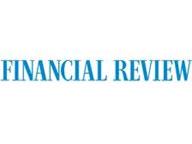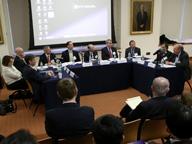Faculty News
—
Professor Edward Altman comments on the possibility of another recession
—

Excerpt from Bloomberg -- "Edward Altman, New York University professor and creator of the widely used Z-Score method for predicting bankruptcies, has also forecast rising U.S. defaults this year, saying in January that recession could follow even with a rate of less than 10 percent, given the increase in debt since the financial crisis."
Faculty News
—

Excerpt from Bloomberg -- "Edward Altman, New York University professor and creator of the widely used Z-Score method for predicting bankruptcies, has also forecast rising U.S. defaults this year, saying in January that recession could follow even with a rate of less than 10 percent, given the increase in debt since the financial crisis."























